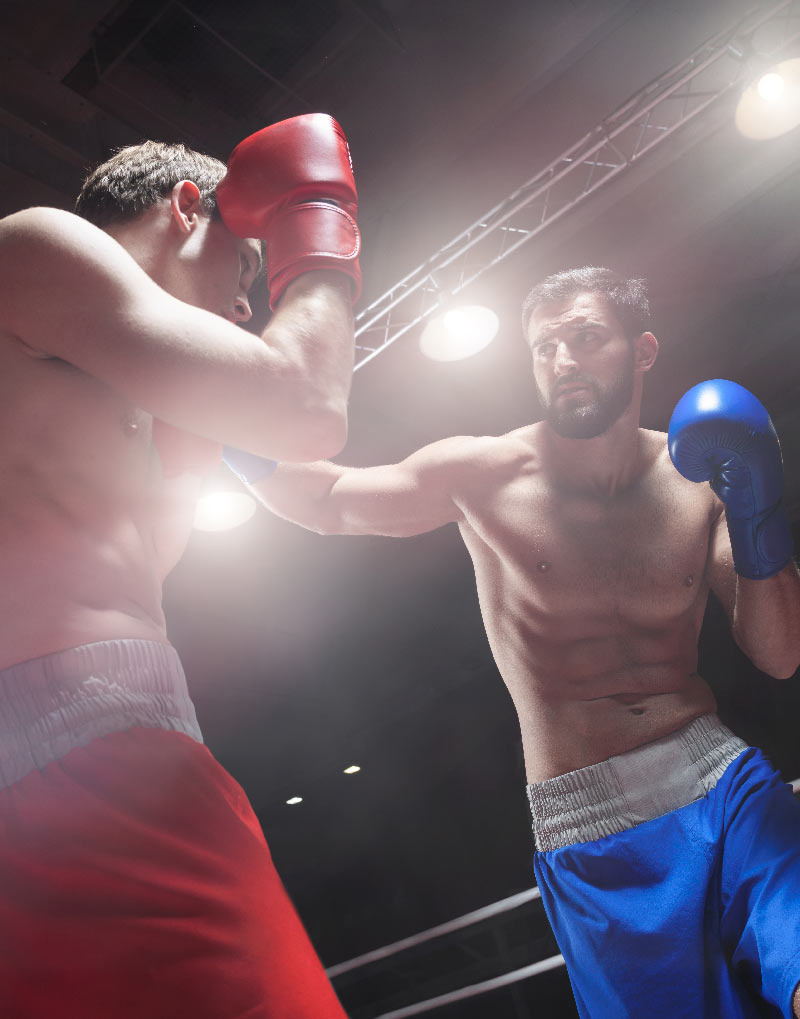Signs and Symptoms
of a Concussion
Signs and Symptoms of a Concussion are often very difficult to detect because the injury is not visible.
It is also possible that typical symptoms of a concussion only appear after a few days.
Among other things, restricted cognitive and physical abilities, impaired consciousness, dizziness and balance disorders, pupils of different sizes, memory gaps, severe headaches, nausea, and nausea suggest a concussion.
Beside is a detailed listing of signs and symptoms of a concussion, one or more of which could indicate a concussion.
What should I do?
Any sporting activity must be stopped immediately.
Make sure the player is assessed as soon as possible by a medically trained person who has had concussion experience. Never try to judge the severity of the injury yourself.
Notify the emergency contact and officials if you have signs and symptoms of a concussion.
PHYSICALLY
- Headache
- Neck pain
- Nausea/vomiting/dizziness
- Movement/balance disorders
- Incoordination
- Visual/hearing impairment
- Fatigue/increased fatigue
- Sensitivity to light/noise
COGNITIVE
- Drowsiness/
unconsciousness - Slowdown
- Confusion / disorientation
- Concentration deficits
- Memory problems
- Language problems (e.g. difficulty finding words)
EMOTIONALLY
- Irritability nervousness
- Emotional lability/irritability
- Lack of drive
- Depressive mood
SLEEP
- Sleepiness
- Increased/educed need for sleep
- Falling asleep and staying a sleep
You or your child has sustained a concussion?
If you believe you or your child has sustained a concussion, consult your family or sports physician as soon as possible for medical evaluation.
If you believe you or your child has sustained a concussion, consult your family or sports physician as soon as possible for medical evaluation. Most sport-related concussion injuries do not require emergency care. However, it is important that the injured party remains under close observation for the first few hours (and even days) following the injury, and the individual should not be left alone or allowed to operate a motorized vehicle. Emergency evaluation is warranted in situations of deteriorating mental status. The following symptoms may indicate that the athlete has sustained a more serious and/or life-threatening injury
- Increasing confusion
- Difficulty recognizing people or places
- Worsening headaches
- Nausea, vomiting
- Excessive drowsiness, lethargy
- Slurred speech
- Convulsions/seizures
At the doctor’s office?
At the doctor’s office, you will be asked to describe the
symptoms you’ve experienced, and you may undergo several tests to determine if a concussion is suspected.
These tests may include a variety of the following:
- Eye exam
- Balance assessment (with your eyes open, and then closed)
- Coordination testing (for example, bringing your index finger to your nose several times)
- Gait evaluation (observing you walk, watching you walk heel-to-toe)
- Blood pressure assessment
- Listening to your heart and chest
- Checking your neck for pain, tenderness, or limited motion
It is merely a guide to possible concussive symptoms. It is important to seek medical attention immediately to receive a diagnosis.

Unfortunately, there is no “gold standard” for the diagnosis of concussion. No single test exists to determine definitively that a concussion has occurred. The physician has to integrate the results from the various tests to establish the overall picture. If there is a typical mechanism of injury consistent with concussion and the athlete reports any one or more of the known symptoms, a concussion diagnosis is given. However,
not all medical doctors and health professionals are up to date on diagnosis and the current management strategies. If you think your doctor’s visit was not informative or thorough, seek a second opinion.
In the event that you or your child requires more specialized assessment, you may be referred to a medical specialist such as a sport physician, neurologist, pediatrician or neuropsychologist who has expertise in concussion and brain injury management. This measure is not always required initially and may be reserved for situations of prolonged recovery or severe impairment.
Get Involved
Whether you want to make a donation or get involved with our team, your help is always appreciated!
Donations are used towards funding educational material for coaches, parents, and teachers and allow us to continue our work in general. If you want to work with us or become an ambassador to help spread the word, please don’t hesitate to contact us! If you are interested, click one of the buttons on the right.
About Us
StopConcussions is a non-profit company, that aims to bring players, parents, coaches and officials information on brain concussions and their consequences in contact sports.
This website is here to help educate and are not intended to replace medical care and/or professional supervision. There is no substitute for a competent neurologist, physician, health professional or clinician when it comes to diagnosing and managing concussions. What StopConcussions offers is an insight into the nature of a brain injury. It is a guide to help you understand the cause, effects and consequences of concussions as well as how you can help reduce the incidences of the injury, manage the injury better and be able to ask all the right questions when dealing with a concussed individual.
The brain is complex, and each injury is personalized. Not only is every brain different, so is every concussion, and the therapy must be tailored to each individual. With this said, only a physician or qualified healthcare professional who has been educated in concussions can recommend a treatment and rehabilitation program. If you have any questions or concerns regarding a specific injury, contact your physician immediately.
Contact Us
Whether you need help dealing with a concussion, need information or other materials or are a concerned parent or coach, we are happy to help. Please contact us with any and all inquiries regarding our field.
